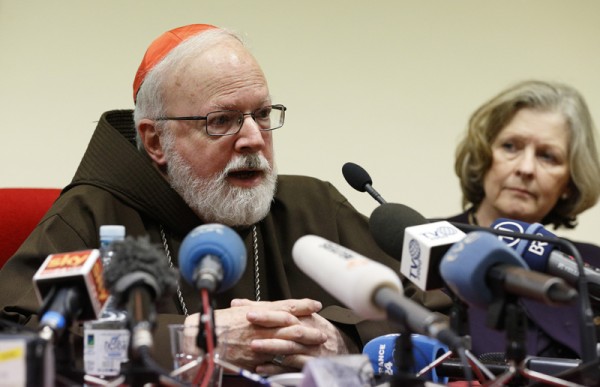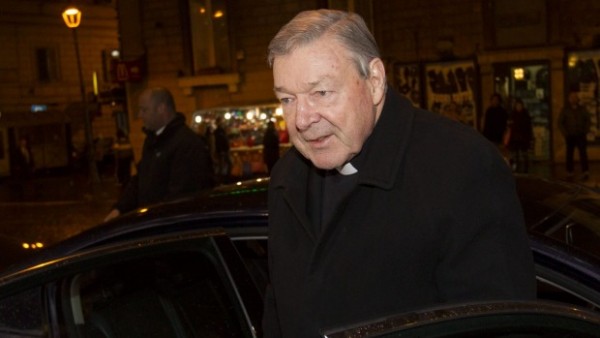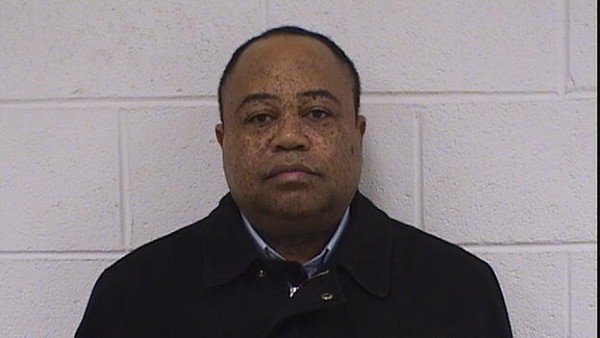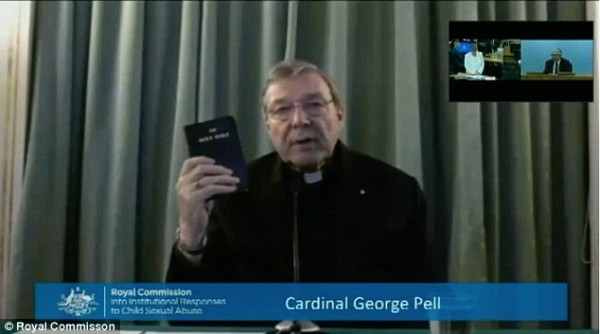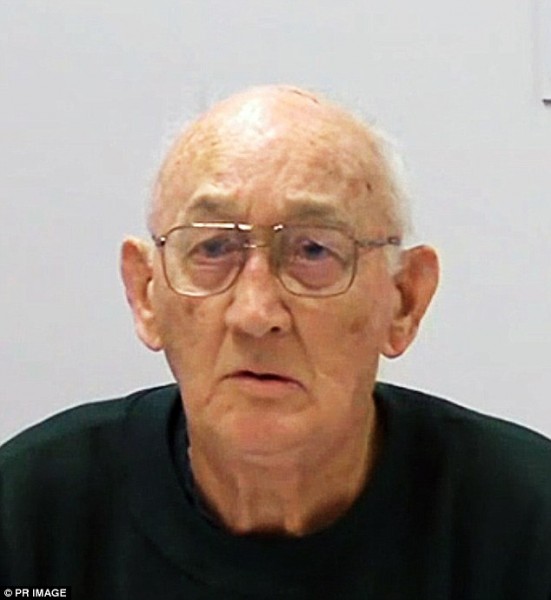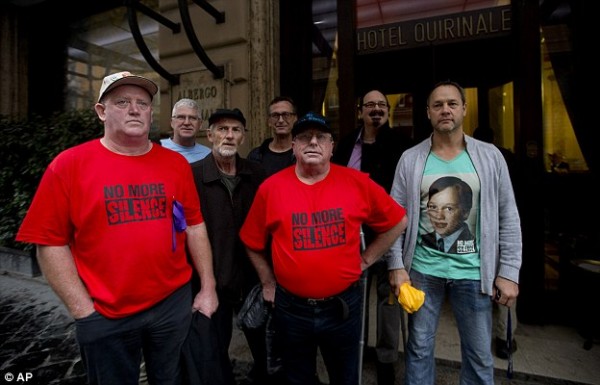A grand jury report issued last week details abuse by dozens of Catholic leaders in the small communities of Altoona-Johnstown from the 1950s to the 1990s
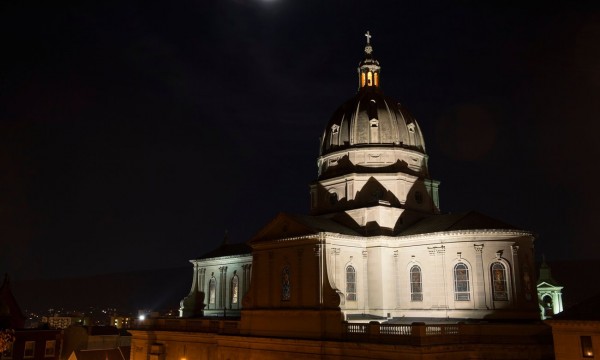
One of Brian Gergely’s fellow altar boys had a code he would use to signal danger in the room where they and the priest prepared for mass.
“He would say ‘red buttons’, and that was the alert that the priest was coming up behind you, and we would try to get away from him, running around the desk in the middle of the room where he kept the chalices, the host and the wine,” said Gergely, 46.
Gergely was 10 at the time.
The priest was Monsignor Francis McCaa, a commanding figure in the small Pennsylvania town of Ebensburg in his black cassock with the red buttons, and one of dozens of Catholic leaders named in a devastating report issued last week by a state grand jury detailing appalling child sex abuse in his diocese and a systematic cover-up by the church.
“I was standing in the sacristy and he pinned me to the desk. I was just a little guy,” Gergely said. McCaa assaulted him there and also while the boy gave confession, at the Holy Name church where his family worshiped.
“My parents were patrons,” Gergely said. “They were going door to door raising money for the church. The community put Monsignor McCaa on a pedestal.”
Other priests named in the report worked in the past at the school, where Gergely recalls being subjected to tough corporal punishment.
With a population of just 3,300, Ebensburg has been jolted by the horrifying details of past abuse in its midst. The grand jury report issued by Pennsylvania attorney general Kathleen Kane describes sex crimes committed on children from the 1950s through the 1990s all across the sprawling Altoona-Johnstown diocese that lies between Pittsburgh and Harrisburg, involving more than 50 church leaders and hundreds of victims. And it reveals previously concealed church documents showing lists of secret payouts made to victims in the diocese.
The pattern of offenses, cover-ups and shuffling accused priests from parish to parish echoes the huge scandals already exposed in Boston, Philadelphia, and elsewhere in recent times.
The report also establishes that church authorities in Altoona-Johnstown knew decades ago what was going on, as did some civic officials and senior figures in the criminal justice system. Many details came out in public in one of the few high-profile civil lawsuits in the early 90s, filed against Father Francis Luddy, a priest who served in both Altoona and Johnstown.
But instead of leaping into action, authorities in Pennsylvania did little, the report asserts, and there was relatively little public outcry.
Now the extent of abuse in the diocese is being unveiled, though notably after the statute of limitations has expired for both criminal and civil action, and with many – but not all – of the perpetrators and their enablers already dead.
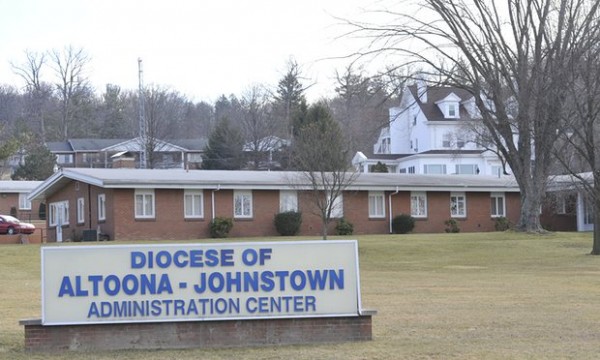
Lying midway between Altoona and Johnstown in the Allegheny mountains, Ebensburg is typical of the many small communities across the diocese, steeped in the Catholic tradition and striving to prosper in the face of declining traditional industries, especially coal mining.
McCaa’s reported depravity on his young flock stands out.
“Father Francis McCaa was a monster,” the grand jury stated.
The investigation found 15 of his alleged victims, abused between 1961 and 1985.
“In some cases children tried to report their abuse to their parents … but were not believed … the grand jury aches at hearing the hopelessness these victims felt when being offended on by a pastor they were taught to respect and honor,” the report says. Some parents punished their children for accusing the “friendly” monsignor, the report says, though at one point the bishop at the time, James Hogan, was confronted by a group of “outraged parents” and promised action.
Hogan met with district attorney Gerald Long and assistant DA Patrick Kiniry, both now serving as judges in the area, the report says, though no charges were brought.
McCaa was removed from the diocese and replaced with a priest who is also named in the report as a pedophile.
McCaa retired in 1993 and died in 2007. Hogan died in 2005.
Gergely was at the courthouse in Ebensburg on Friday to witness three state lawmakers holding a small public event in the marbled vestibule to announce a call for more action.
The three pledged to fight for legislation – which has been stuck for many years in committee in the state capital of Harrisburg– on whether to abolish the statute of limitations in civil cases involving child abuse. They also plan to introduce a bill to create a special, two-year window allowing past victims to sue the church.
“Just in this borough, it’s like a cancer,” said the state senator David Burns. “Everyone here knows a victim, even though they may not know they know it. The attorney general did not say the investigation is closed and there may be more to come. They estimate that in a single little town like this, McCaa affected a generation of kids.”
And people may not have realized the extent to which tears in the fabric of the community were ripped by McCaa and his ilk, Burns said.
“We have a large drug problem in our area, we deal with high driving-under-the-influence (DUI) arrests, and we just think that’s because the community is poor and unemployed, but it could be that a lot of these kids have had a hard time integrating into society because of the impact of this abuse. It strains family and sexual relationships, and it often takes years, especially for a man, to report something,” said Burns.
He said he had no reason to believe that abuse was not continuing after the period covered in the report and he hoped there would be further action.
Nationally, John Salveson, founder of the campaign group the Foundation to Abolish Child Abuse, and other activist groups, such as the Survivors Network of those Abused by Priests (Snap), are calling on Barack Obama to launch a federal investigation.
State assemblyman Mark Rozzi’s district is outside the Altoona-Johnstown diocese. But he is calling for a grand jury investigations in every diocese in Pennsylvania.
Rozzi said that legislators at the state assembly in Harrisburg were “running away and hiding in their offices, refusing to speak to me” when he tried to talk about taking government action against the abuse.
Rozzi, now 44, said when he was 13, he fell prey to his priest, Edward Graff.
When Graff invited a school friend of Rozzi’s to the rectory, too, the boy realized he was not the only one. Rozzi recalls Graff telling the friend to wait, while he took Rizzo into the shower and raped him.
“I remember staring at this bit of the shower wall and thinking: ‘I can stand here and take this or I can run,’” he said.
Rozzi shoved the man off him and raced out of the shower, grabbing some clothes and yelling to his friend to flee.
“I was running down the hall of the rectory, basically naked. Father was screaming at us. I said to my friend: ‘No one can know about this,’” he said. They ran away, terrified.
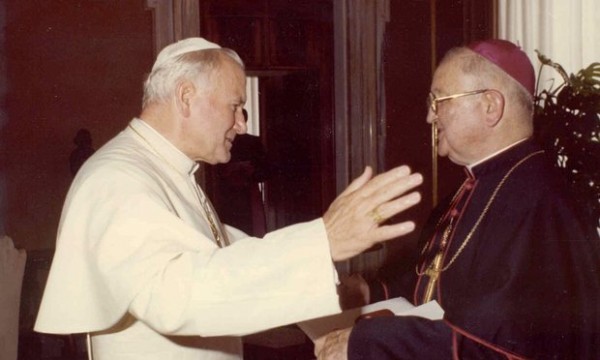
Rozzi became a star athlete at college, but suffered psychologically. He had appalling nightmares about being chased and raped by the priest, dreams which he tried to quell with marijuana. He credits his wife, whom he met at college, for helping to save his sanity.
After unsuccessfully lobbying the state assembly, while in his thirties, to take action on child abuse, Rozzi ran for office himself. Three of his childhood friends who also suffered sexual abuse by priests have killed themselves, the most recent on Good Friday last year.
Brian Gergely started drinking at 10 after he says he was groped by McCaa. Disappointing grades at school and two DUI convictions thwarted his ambition to become a lawyer. He is now a behavioral therapist for kids with special needs, has trouble keeping a girlfriend and is single, he said. In 2006, he tried to hang himself.
The bishop who succeeded James Hogan, Joseph Adamec, who has since retired, testified to the grand jury. He is excoriated in the report for failing to take action against numerous abusive priests, while ignoring victims. The report says church leaders sought to discredit victims and their families.
Adamec was not at home on Friday evening at the address publicly listed for him in Hollidaysburg, near Altoona, and could not be reached for comment.
But at his house next to the church where he is pastor in Altoona, Monsignor Michael Servinsky, 69, answered the door and spoke while standing in his hallway beneath portraits of the pope and the current bishop of the diocese.
Servinsky was cited in the grand jury report as having failed to notify law enforcement in 2001 and 2002 about two priests who admitted past abuse to him, one of boys the other of girls.
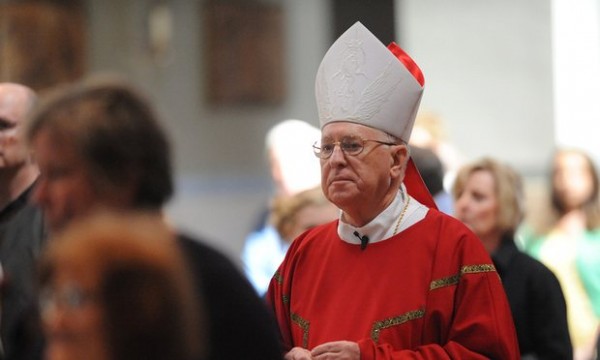
Servinsky denied to the Guardian that he had done anything wrong.
“I think the grand jury did quite a hatchet job on Bishop Joseph – they did him in. He was very concerned about making sure the victims got covered [financially]. And they talk about Bishop Hogan manipulating the legal system. No. I know situations where police and judges would collar him and say: ‘Get that guy out of here and we will not prosecute.’ We are talking about a different age, going back 40 or 50 years,” he said.
Servinsky added, however, that there was “no excuse” for child abuse.
He said some priests were dismissed and others were allowed to retire “because if we dismissed them, they would not have any income, and that would not be just”.
Asked whether the priests should be in prison, Servinsky argued that pedophilia has always been a problem going back millennia and in 2016 “we are still dealing with the same problem”, so what good would prison do?
“We have capital punishment and there are still murders,” he said, adding: “Most of the victims who came to us were not interested in taking it to law enforcement. They didn’t want to testify.”
Two miles up the street, the basilica-style Cathedral of the Blessed Sacrament overlooks downtown Altoona.
Around 100 parishioners attended a Lent service there on Friday evening. Numerous priests named in the grand jury’s report served at the cathedral during their careers, and the report found that children were raped on the premises.
Emerging with her adolescent son, Tina, a physical education assistant born and raised in Altoona, who preferred not to give her last name, said she thought the turnout at the service had been “three times as high as normal” as people showed their support for the embattled diocese.
Inside, Father Dennis Kurdziel had just finished presiding.
He said he was “stunned and sickened” by the revelations in the grand jury report and regretted that it forced all those “wearing the collar” to feel the eye of suspicion, whether accurate or not.
“It takes your breath away. I felt this week like I was hit in the face with a two-by-four,” he said.
Current Altoona-Johnstown bishop Mark Bartchak apologized on Thursday. But state lawmakers Burns, Rozzi and John Wozniak said the test of his sincerity would be what he and other leaders do now.
Kurdziel said: “We should not hide behind the statute of limitations. If it could somehow help and protect people, then we should do it. I have a responsibility as a priest. I don’t like to think of it as power.”
Asked what a young parishioner should do if a man of the church attempts to touch them inappropriately, he said: “Smack them in the face as hard as you can and run to a cop.”
Complete Article HERE!

